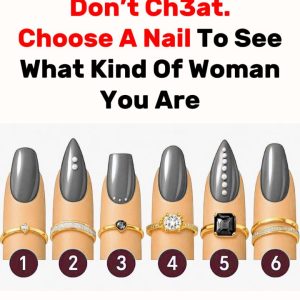Unpacking the IOC’s Controversial Decision: Navigating Fairness and Inclusivity in Women’s Sports.
In a move that has ignited a new chapter in the ongoing debate surrounding gender identity and sports, the International Olympic Committee (IOC) has announced a ban on ‘biological males’ participating in women’s sports. This decision has sent shockwaves through the sporting world, sparking heated discussions about fairness, inclusivity, and the intersection of science and policy.
Over the years, sports have witnessed a transformative shift towards inclusivity. Efforts have been made to create environments where athletes of all backgrounds and identities can compete on an equal playing field. However, the question of how to accommodate transgender athletes has presented a complex challenge, prompting governing bodies to revisit and redefine policies.
The IOC’s decision to ban ‘biological males’ from women’s sports marks a significant departure from previous policies. The term ‘biological males’ is introduced as a way to distinguish athletes who were assigned male at birth, regardless of their gender identity or transition status. The ban is rooted in concerns about maintaining a level playing field and preventing potential advantages that some argue may result from physiological differences.
At the heart of the controversy lies the intricate intersection of science and policy. Critics of the ban argue that it oversimplifies the complex relationship between biology and athletic performance. They contend that factors like hormone levels and individual variations are not adequately addressed in a blanket ban. Supporters, on the other hand, assert that preserving the integrity of women’s sports necessitates clear guidelines.
While the ban is framed as a measure to protect the fairness of competition, its impact on transgender athletes is a central concern. Advocates for transgender rights argue that such bans perpetuate discrimination and hinder the progress made towards a more inclusive sporting landscape. The ban raises questions about how to strike a balance between fairness in competition and respecting the rights of athletes to compete in alignment with their gender identity.
The announcement has triggered passionate reactions from both ends of the spectrum. Advocacy groups emphasize the importance of understanding the diverse experiences of transgender athletes and creating policies that reflect this complexity. Critics of the ban insist that it is a necessary step to maintain the integrity of women’s sports, preventing what they perceive as potential advantages in strength and stamina.
The ban brings forth a myriad of legal and ethical considerations. Questions about the right to participate without discrimination, the potential infringement on individual rights, and the broader implications for transgender rights advocacy are at the forefront of the discussion. Legal challenges may emerge as athletes and advocates seek to contest the ban on grounds of discrimination.
In the wake of this controversy, calls for more nuanced policies that consider individual circumstances and the evolving understanding of gender identity in sports are gaining momentum. Crafting guidelines that strike a balance between ensuring fair competition and recognizing the rights of transgender athletes is a complex task that requires input from medical professionals, athletes, and legal experts.
The IOC’s ban has set the stage for a global conversation about the role of sports in shaping societal attitudes towards gender identity. Different countries and sports organizations may respond to the ban in varied ways, reflecting the diversity of perspectives on this complex issue. This conversation extends beyond the realm of sports, reaching into discussions about inclusivity and acceptance in society at large.
The International Olympic Committee’s decision to ban ‘biological males’ from women’s sports is a decision that goes beyond the realms of competition. It delves into the intricate web of science, policy, ethics, and societal values. As the sporting world grapples with this new directive, it is crucial to foster open and inclusive dialogues that consider the diverse perspectives at play.
This controversy is an opportunity to reevaluate and refine policies, recognizing the unique experiences of transgender athletes while upholding the principles of fair competition. It calls for a delicate balance that respects the rights of all athletes, regardless of their gender identity, while ensuring the integrity and inclusivity of sports on the global stage.





